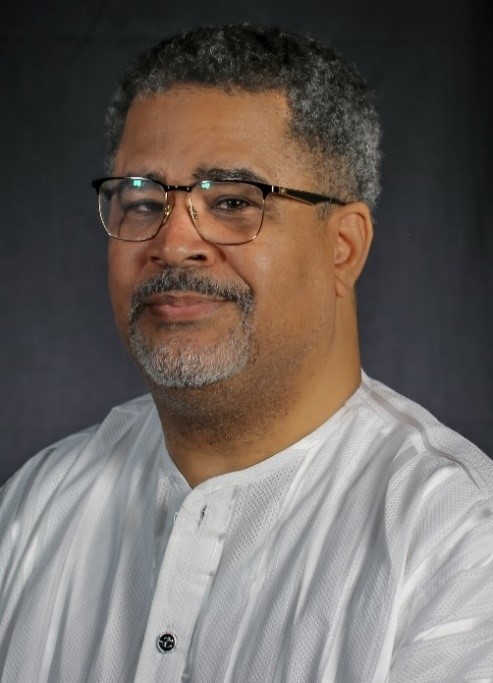Information sur l'intervenant

Dr Reynaldo Anderson
Temple University
Philadelphia (PA), USA
Dr. Reynaldo Anderson is an Associate Professor at Temple University in the department of Africology and African American Studies. Dr. Anderson’s work has been the subject of Time magazine, the BBC, and other national and international publication about Afrofuturism. He is the co-editor of the following anthologies and journals, Afrofuturism 2.0: The Rise of Astro-Blackness and The Black Speculative Arts Movement: Black Futurity, Art+Design (Lexington Books, 2015, 2019), Cosmic Underground: A Grimoire of Black Speculative Discontent (Cedar Grove Publishing, 2018), Black Lives, Black Politics, Black Futures, a special issue of TOPIA: Canadian Journal of Cultural Studies (2018), and When is Wakanda: Afrofuturism and Dark Speculative Futurity (The Journal of Futures Studies, 2019). Furthermore, Dr. Anderson’s latest exhibition The Black Angel of History Myth-Science, Metamodernism and the Metaverse was curated in the Zankel theater of Carnegie Hall and on the Google Arts Platform. Currently, Dr. Anderson is a member of the curatorial council for the Carnegie Hall Afrofuturism festival in New York City in February and March 2022.
Titre de la communication
“Afrofuturism 2.0, African futurism, Hauntology and the Rise of Dark Speculative Futurity”
presenté le 26 octobre 2022, de 10h - 12h
Résumé de Communication
Abstract
The changing world order and metamodern moment is haunted by the ghosts of slavery, colonialism, and genocide. However, the great African American mystic Howard Thurman previously noted in his book The Luminous Darkness there was hope and light in the darkest situation. Correspondingly, the growth of Black Speculative creative production emerged in this haunting darkness, parallel to the European emergence of science fiction and horror reflected in the work of writers like H.P. Lovecraft and H.G. Wells. In the context of this hauntology, theorist Mark Fisher “The emergence of a 21st century sonic hauntology is a sign that “white” culture can no longer escape the temporal disjunctions that have been constitutive of the Afrodiasporic experience since Africans were first abducted by slavers and projected from their own lifeworld into the abstract space-time of Capital” Currently, Afrofuturism, one of the perspectives of the Black Speculative tradition, is an emerging philosophy of the diaspora and Africa. Incorporating the work of Molefi Kete Asante, Anna Everett and others, the meta-theory of Afrocentricity, offers a framework for how African people locate themselves in time and space with agency, with the understanding that the control of time is tied to the control of space. For example, within this African centered approach C.T. Keto asserts “The Africa centered perspective provides the type of history for people of African descent that makes sense of what they, rather than somebody else, went through first, and for an African liberated future, and as a futurologist she or he can speculate and gaze beyond the next century” Within the context of Afrofuturism, It is currently expressed as high culture in relation to metaphysics, aesthetics, theoretical and applied science, social science, and programmatic spaces. . Furthermore, along with Afrofuturism, African futurism, and other contemporary futurity formations such as Arab futurism, indigenous futurity and more are maturing in metaphysical components such as cosmogony (origin of the universe), cosmology (structure of the universe), speculative philosophy (underlying pattern of history) and philosophy of science (the impact of theoretical and applied science on society, culture, and individuals). This global formation can collectively be referred as Dark Speculative Futurity. However, some of these emerging speculative formations lack a critical standpoint or path to otherness or Derrida’s notion of L’Avenir in relation to contemporary and future forces of production and social reality. Yet, with advent of Afrofuturism 2.0 this worldview is systematically developing as it emerges as a speculative locus of critical inquiry in the areas of alienation, racism, urbanization, resource depletion, technology, exploitation, bourgeoisie ideology and Eurocentrism.
